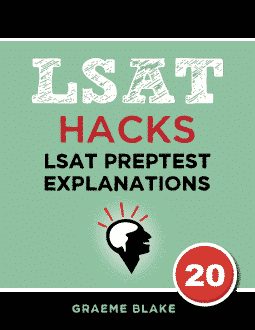QUESTION TEXT: Using fossil energy more efficiently is in the…
QUESTION TYPE: Weaken
Argument: We won’t improve fossil fuel efficiency unless the government intervenes.
Objection: The market…the market…leave it to the market. (this objection completely fails to address the point that there will be no efficiency improvements without government intervention.)
ANALYSIS: The right answer provides a situation where the market does not solve the problem.
___________
- Neither the stimulus nor the objection talked about making the changes all at once.
- This argues in favor of the market. Government regulation isn’t needed: consumers can decide if they want more efficiency.
- This doesn’t tell us if the market or the government would make the systems more efficient.
- This shows that the market can work without intervention.
- CORRECT. This shows that market incentives don’t work in certain cases. Your landlord saves money on insulation and you pay the increased heating bill. Regulation could solve that problem.
Recap: The question begins with “Using fossil energy more efficiently is in the”. It is a Weaken question. Learn how to master LSAT Weaken questions on the LSAT Logical Reasoning question types page.
More Resources for Weaken Questions
- Intro Course lesson: This intro course lesson covers Weaken questions.
- Mastery Seminar lesson: This LR Mastery seminar lesson covers weaken questions.


Hey Graeme,
I appreciate the help you and your moderators have provided me on other Q’s.
I chose A because the stimulus says government implementation of standards is necessary “to eliminate products and practices that are among the least efficient.” A is coherent to this idea by saying that consumers (integrates market framework) will, through their usage of highly efficient automobiles, be enlightened to the inefficiency of other products in that industry. Hence the contention that the decision should be left to the market is rendered invalid because both the market and government scenarios achieve the same outcome.
I’m struggling to grasp your explanation because I figured the right answer would integrate the rationale of the stimulus in a market setting to show how the contention is still valid, whether through the government or the market.
AKA
ME:
integrate the rationale in the stimulus with the market to prove that the market consensus won’t vary from the stimulus, hence objection not valid
WHEREAS YOU:
integrate the rationale in the stimulus with the market to prove that the market consensus won’t adhere to the stimulus, hence objection not valid.
Apologies if I’m not grasping your framework 100%, don’t mean to misrepresent you.
Hi, glad you’re enjoying the site!
The objection states that decisions on energy use should be up to the operation of the market. Since it’s an objection to a statement about government regulation, we can infer that the objection is (1) against government regulation, and (2) for market self-regulation. Our job is to find an answer that effectively counters this assertion by demonstrating that government regulation is necessary because the market alone cannot always ensure efficient energy use. We can’t settle for “whether through the government or the market” as you write, we need to specifically prove that the government should be involved because the market isn’t always successful at self-regulation.
B argues that consumers will become aware of energy inefficiencies by comparing products, which suggests that the market can self-regulate towards greater efficiency. So B supports the objection rather than undermining it. The implication here is that if consumers are informed, they can make choices that lead to improved efficiency without any need for government intervention.
I’m not entirely sure where you’re inferring that government regulation would lead to the same outcome from, as B does not involve any government regulation. The outcome in this case is that consumers will regulate themselves towards more efficient energy use (i.e. the market is self-regulating). The only thing you can infer about government regulation in B is that it’s not necessary (because the market is self-regulating, hence why B is in favor of the objection). So it supports it rather than undermining it.
In contrast, E clearly outlines a scenario where the market fails to drive efficiency due to misaligned incentives (the purchaser and the user are not the same). This highlights a need for government intervention to address inefficiencies that the market cannot regulate on its own.
Hopefully that clarifies things. If you have any other questions or thoughts, I’d be happy to discuss further.